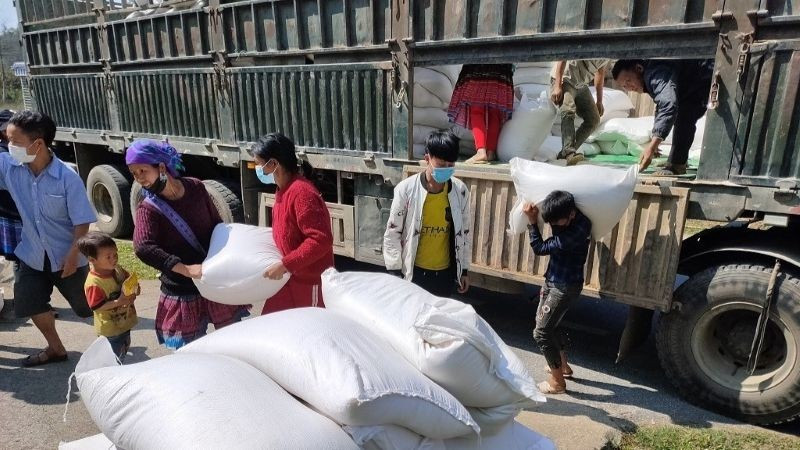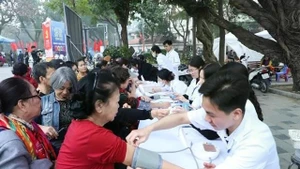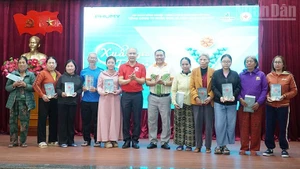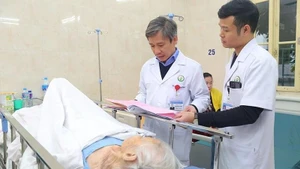Although natural disasters, epidemics, and social risks continue to exert pressure and threaten people’s lives, the timely intervention of the Government and local authorities has helped strengthen public confidence in social stability and positive prospects.
As of October 30, the Government has allocated 1,003.9 tonnes of rice to support people in overcoming the impacts of natural disasters and floods in October. Thus, from the beginning of the year to October 30, the Government has provided nearly 12.3 thousand tonnes of rice to the population, including 6 thousand tonnes of rice for hunger relief during the Lunar New Year for 402.6 thousand people; 4.3 thousand tonnes of rice for the lean season in 2025 for 284.5 thousand people; and nearly 2 thousand tonnes of rice for natural disaster and flood recovery for 115.3 thousand people.
According to a report by the Ministry of Health, public healthcare remained consistently monitored and prioritised despite ongoing disease risks. In October, more than 38,000 cases of dengue fever, hand, foot and mouth disease, and measles-suspected fever, as well as cases of encephalitis, meningitis and rabies, were recorded nationwide. However, for the 10-month period overall, the total number of reported cases decreased compared with the same period last year, reflecting the healthcare sector’s efforts to control disease outbreaks.
Environmental protection efforts were also strengthened, with 12,570 violations handled in the first 10 months, demonstrating a firm determination to control pollution and move towards green development.
In terms of culture, several notable cultural events took place in October, such as: the first Cultures of the World Festival in Ha Noi from October 10–12; the first 2025 Autumn Fair from October 25 to November 4; the Ha Long Concert 2025 themed “Heritage spirit – Lighting up the future” in Quang Ninh on October 29; and the 2025 National Cheo Festival in Bac Ninh from October 20 to November 2, featuring nearly 1,000 artists and musicians from 11 art troupes nationwide.
In the field of sports, Vietnamese athletes continued to make strong impressions, becoming a source of inspiration for the younger generation and fostering national pride and resilience. At the 2025 Asian Youth Games held in Bahrain from October 22–31, the Vietnamese delegation won a total of 1 gold, 7 silver, and 11 bronze medals, ranking 22nd overall. The Vietnamese pétanque team won a gold medal at the 2025 World Pétanque Championship held from October 9–12 in France; and the Vietnamese team won 3 gold, 3 silver, and 4 bronze medals at the 2025 Southeast Asian Pencak Silat Championship held in Thailand from October 10–14.
Alongside these positive highlights, natural disasters and traffic accidents remained persistent concerns in people’s daily lives. In October alone, 1,535 traffic accidents occurred, leaving 843 people dead and 1,018 injured. Overall, in the first 10 months of 2025, both the number of accidents and fatalities decreased compared with the same period in 2024, marking an encouraging sign in society’s efforts to reduce traffic incidents.
Natural disasters in October caused severe damages, with 92 people left dead or missing, more than 285,000 houses affected, and tens of thousands of hectares of rice and crops submerged and destroyed. Total losses were estimated at 43.110 trillion VND, nearly 100 times higher than the same period last year. Nonetheless, total losses for the 10-month period decreased by just 28.6% thanks to localities’ proactive response measures and rapid support policies from the central level.
















